"Café de Paris" French Conversation Workshops for Healthcare and Social Services Professionals
These workshops offer a friendly setting for healthcare professionals wishing to develop their French speaking and listening comprehension skills.
Free
Our cookies and those of our partners help improve your experience and analyze your use of the website. To learn all about cookies, check our privacy policy
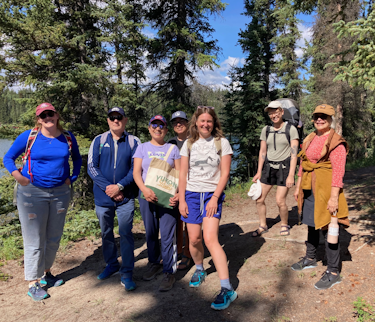
In this testimony, Margarita Sánchez Ovando, French and Spanish instructor at Collège Nordique, reflects on the professional and human experience she had at the 2025 Summer Institute.
From August 4 to 8, 2025, I took part in the Summer Institute for French as a Second Language (FSL) school staff, organized in Whitehorse by the Association franco-yukonnaise (AFY), in partnership with the Yukon Department of Education. This training aimed to strengthen the teaching skills of educators working in Northern contexts, particularly in the Northwest Territories, Yukon, and Nunavut. It was a week of learning and meaningful human connections that deeply impacted me.
It all began over breakfast with five fellow educators from Yellowknife, Dawson, and Whitehorse, as well as two seasoned instructors: Nathalie Walsh and Catherine Bouchard. Their experience teaching French as a second language in school settings set the tone for a week rich in exchanges. AFY was represented with enthusiasm and kindness by Élodie Vidal, whose presence ensured a smooth and human-centered coordination throughout the training.
From the very beginning, the objectives were clear: to explore the many faces of Northern Francophonie, to develop new pedagogical approaches adapted to our realities, and to foster networking between participants and professionals in the community.
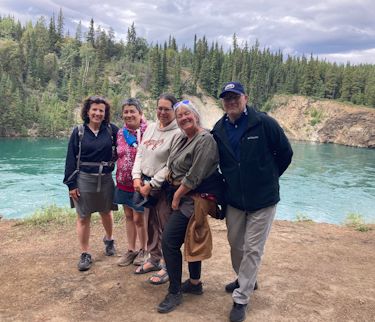
Under the theme Our Francofun Identities, the Institute’s programming offered a series of creative and reflective activities focused on the arts, language, storytelling, and the use of our natural environment as a pedagogical tool.
The workshops allowed us to rethink our practice through an inclusive, land-based lens. A standout moment was a meeting with Monique Lévesque – an immersion teacher and member of the Huron-Wendat Nation – who invited us to reflect on the links between education and decolonization in minority francophone schools. The venue, the Kwanlin Dün Cultural Centre, added powerful resonance to the discussion.
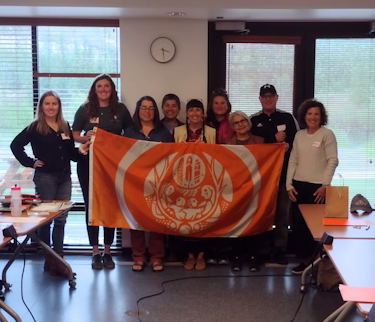
We also had the privilege of participating in a land art workshop with northern artist Marie-Hélène Comeau, whose approach reconnected us to the present moment, to nature, and to our ability to teach differently. Finally, intergenerational musical moments led by Danielle Bonneau and Éric Desaulniers offered a warm, shared space where we sang francophone songs from our youth.
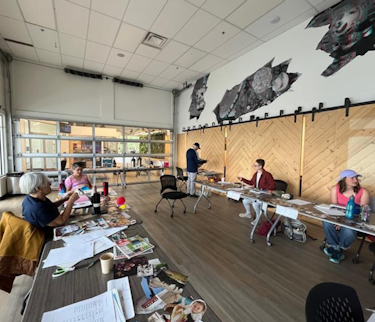
One of the most memorable aspects of this week was the close connection to Yukon’s spectacular nature. As the days passed, formal learning blended with meaningful outdoor experiences: hiking around Long Lake, walking through Miles Canyon, canoeing on Chadburn Lake... Each activity enriched our reflection on how to integrate the environment into language and cultural education.
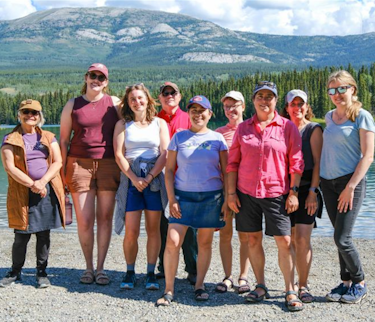
More than just a training session, the Summer Institute offered space to recognize the value of our work in often-overlooked minority contexts. We shared our challenges and celebrated our strengths in a setting that uplifted Northern voices, collaboration, and creativity.
I leave with a renewed toolkit—but above all, with a refreshed vision of our role as mediators of the French language in the North. Teaching in a northern context means contributing to a vibrant, plural, and territory-rooted Francophonie.
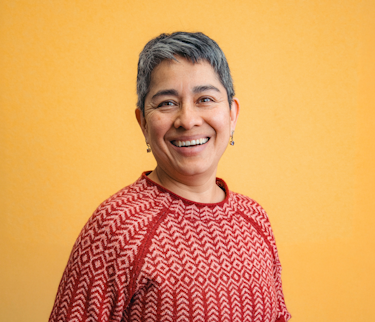
Margarita Sánchez Ovando is a French and Spanish instructor at Collège Nordique. Originally from Mexico and holder of a PhD in Educational Sciences from Université Paris V, she places linguistic, cultural, and environmental diversity at the heart of her pedagogy. She sees language teaching as a tool for social transformation and intercultural dialogue.
Published on August 18th 2025
Loading
Thank you for subscribing